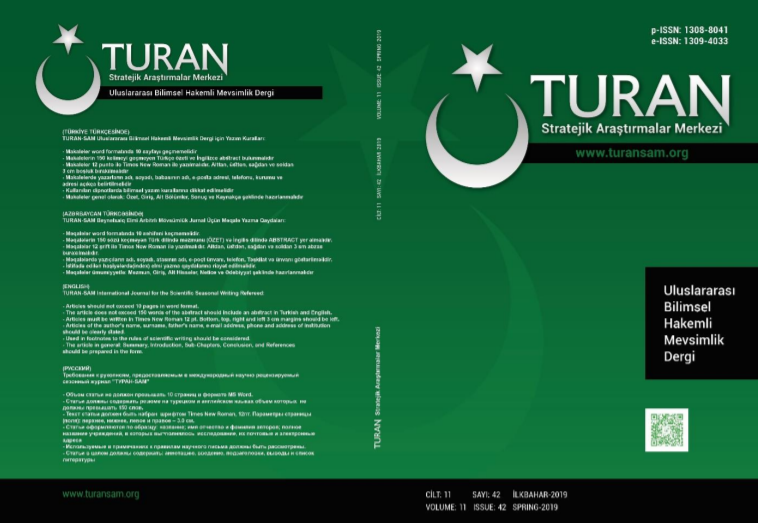SOĞUK SAVAŞ SONRASI DÖNEMDE RUSYA FEDERASYONU’NUN AFRİKA POLİTİKASI
POLICY OF THE RUSSIAN FEDERATION ON AFRICA IN THE PERIOD AFTER THE COLD WAR
Author(s): Hayati Aktaş, Cihan DabanSubject(s): Economic policy, International relations/trade, Military policy, WW II and following years (1940 - 1949), Post-War period (1950 - 1989), Transformation Period (1990 - 2010), Cold-War History, Post-Communist Transformation
Published by: Sage Yayınları
Keywords: Cold War; USSR; Russia; Africa;
Summary/Abstract: Two of the significant events of the 20th century were undeniably the beginning and the end of the Cold War. The Cold War, which started in 1947 with the Truman Doctrine, ended by the collapse of the Union of Soviet Socialist Republics in 1991. The collapse of the Soviets provided a transition to a new world order. It led to several transformation processes from Asia to Europe and the Americas to Africa. Not only were new states established, but there were also changes in the policies of the existing states. The Russian Federation was established as the successor of the Soviets. Russia looked for methods to be present in the world arena with a new policy and followed milder politics in comparison to the Soviets. With this aspect, it emerged as a significant actor in both Asia and Europe. Outside these regions, it has also been effective in Africa. It has been prominent from economic collaboration to military security and from diplomatic relations to political relations. In this context, this article discusses and investigates the policy of the Russian Federation on Africa in the period after the Cold War with its main aspects.
Journal: TURAN-SAM
- Issue Year: 11/2019
- Issue No: 42
- Page Range: 132-142
- Page Count: 11
- Language: Turkish

